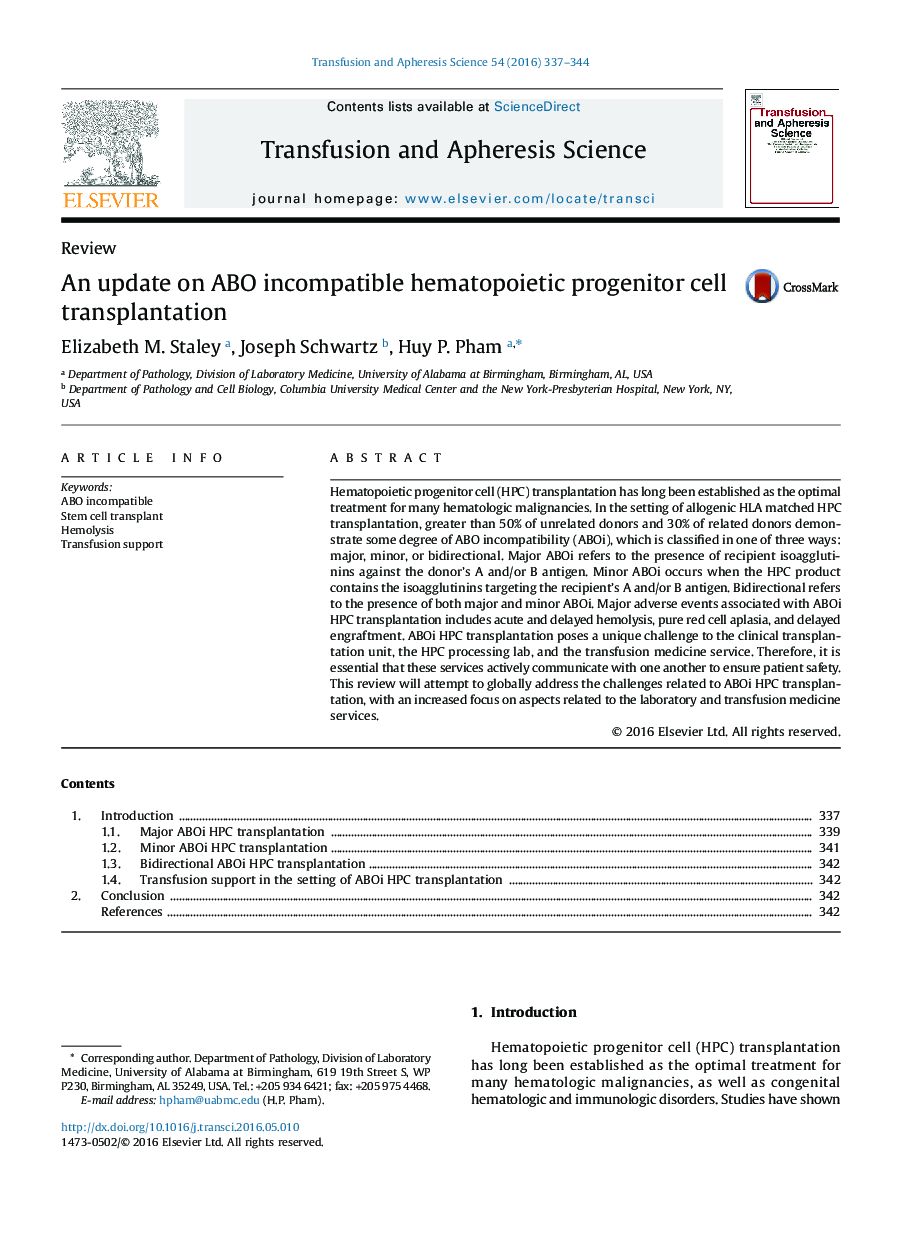| Article ID | Journal | Published Year | Pages | File Type |
|---|---|---|---|---|
| 3334835 | Transfusion and Apheresis Science | 2016 | 8 Pages |
Hematopoietic progenitor cell (HPC) transplantation has long been established as the optimal treatment for many hematologic malignancies. In the setting of allogenic HLA matched HPC transplantation, greater than 50% of unrelated donors and 30% of related donors demonstrate some degree of ABO incompatibility (ABOi), which is classified in one of three ways: major, minor, or bidirectional. Major ABOi refers to the presence of recipient isoagglutinins against the donor's A and/or B antigen. Minor ABOi occurs when the HPC product contains the isoagglutinins targeting the recipient's A and/or B antigen. Bidirectional refers to the presence of both major and minor ABOi. Major adverse events associated with ABOi HPC transplantation includes acute and delayed hemolysis, pure red cell aplasia, and delayed engraftment. ABOi HPC transplantation poses a unique challenge to the clinical transplantation unit, the HPC processing lab, and the transfusion medicine service. Therefore, it is essential that these services actively communicate with one another to ensure patient safety. This review will attempt to globally address the challenges related to ABOi HPC transplantation, with an increased focus on aspects related to the laboratory and transfusion medicine services.
